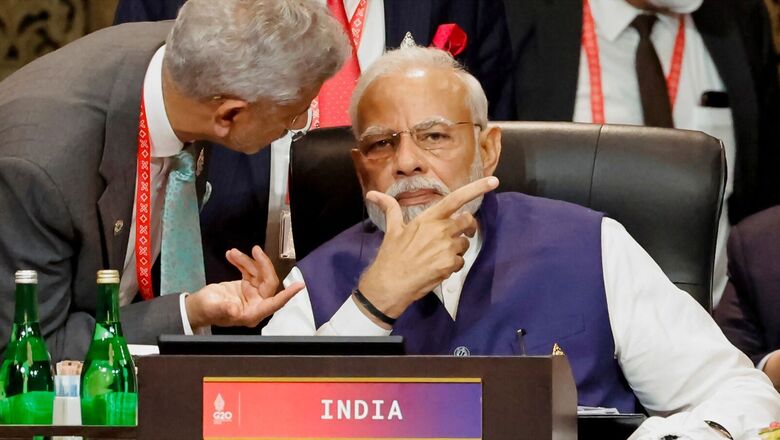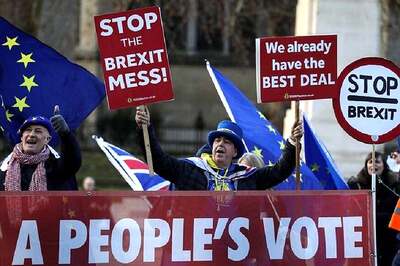
views
As the global economy was normalising after a battering from the Covid pandemic, the Russia-Ukraine War broke out in 2022. The world plunged into an energy crisis. Crude oil prices shot up to about $127 a barrel. But one country that dealt with the situation effectively was India, in more evidence of its growing stature on the international stage despite a few pesky neighbours.
As the world became polarised because of the Russia-Ukraine conflict, India was expected to take sides. However, the government led by Prime Minister Narendra remained firm, deciding to act only in India’s national interests.
Criticism came in from several European nations for India’s purchase of fuel from Russia. However, external affairs minister S Jaishankar and his team handled these attacks on the world stage deftly, yet firmly, exposing Western hypocrisy on many occasions.
Lending a helping hand
The war also sparked a food crisis in some countries, and India again rose to the occasion, just like it did when there was a dearth of vaccines in many nations during the pandemic. Indian wheat landed on the plates of several countries affected by the conflict.
2022 was also the year when India became the fifth-largest economy in the world, leaving the UK behind. It also went past the $400 billion mark in annual exports. With the global supply chains in a reset, the Modi government has tried to position itself in the best way possible, launching several production-linked incentive schemes to boost manufacturing.
India also extended assistance of about $4 billion to stabilise Sri Lanka’s economy which was in a tailspin in 2022, coupled with massive political upheaval.
India’s growing strategic importance on the world stage is reflected in the establishment of the EU-India Trade and Technology Council – the second country (after the United States) with which the EU has established such a forum – as well as India’s participation in the Supply Chain Resilience Initiative that seeks to diversify supply chains away from China.
The G20 opportunity in 2023
India has entered 2023 with the G20 presidency, as the voice of the Global South. The year-long opportunity gives India a chance to set global agendas, articulate policies, and build consensus over critical economic, development, socio-political and security issues.
While the Russia-Ukraine conflict persists, PM Modi’s statement that “this is not an era of war” has resonated with many nations. His sincere focus on combating climate change has also not gone unnoticed.
International challenges
Widening Russia-China axis: Russia has become increasingly interested in peripheral affairs. Also, sanctions slapped on it over the war with Ukraine have pushed it closer to China.
Turbulent neighbourhood: India’s immediate neighbourhood has been volatile for decades. However, relations with China and Pakistan seem to have worsened in several aspects in recent days. Beijing’s chequebook diplomacy has also strained India’s ties with countries like Sri Lanka and Pakistan. Relations with Bangladesh seem to have suffered to some degree over the National Register of Citizens (NRC), while there’s been a border dispute with Nepal.
Impaired multilateral fora: India seems to have lost touch with bodies like South Asian Association for Regional Cooperation (SAARC), while it has also opted out of the Regional Comprehensive Economic Partnership (RCEP).
In 2023, observers see India rising to a higher position on the global stage, courtesy its economic durability and social equity. India’s foreign policy agenda is going beyond the traditional thinking of geopolitical boundaries, with more new and unconventional trade, security, and strategic agreements expected to be reached with various nations. The presidency of G20 will give it the chance to weave geoeconomic themes with geopolitical interests, and to articulate and be proactive on issues that matter to the world.
Read all the Latest India News here




















Comments
0 comment